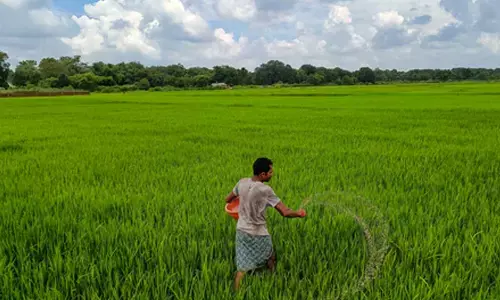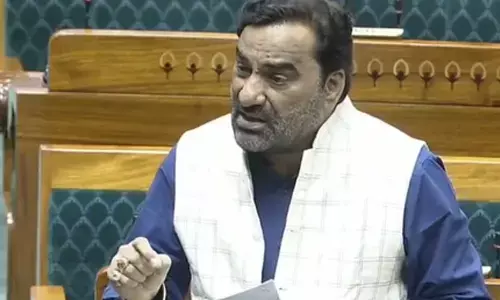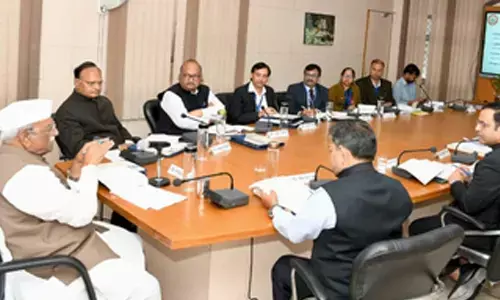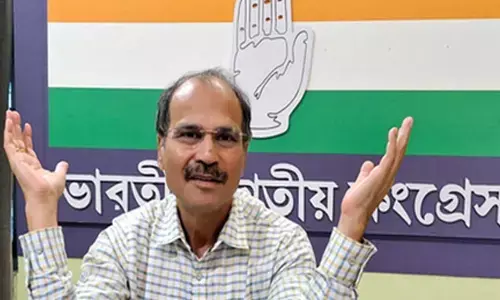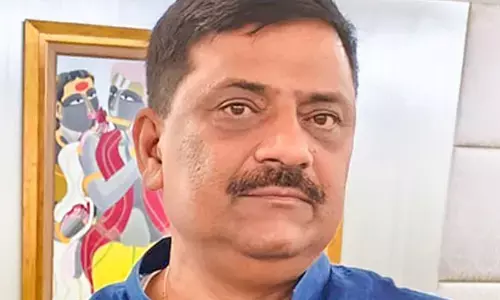Govt sources say Railways spent over Rs 1L cr of RRSK funds on safety in five years
Share :
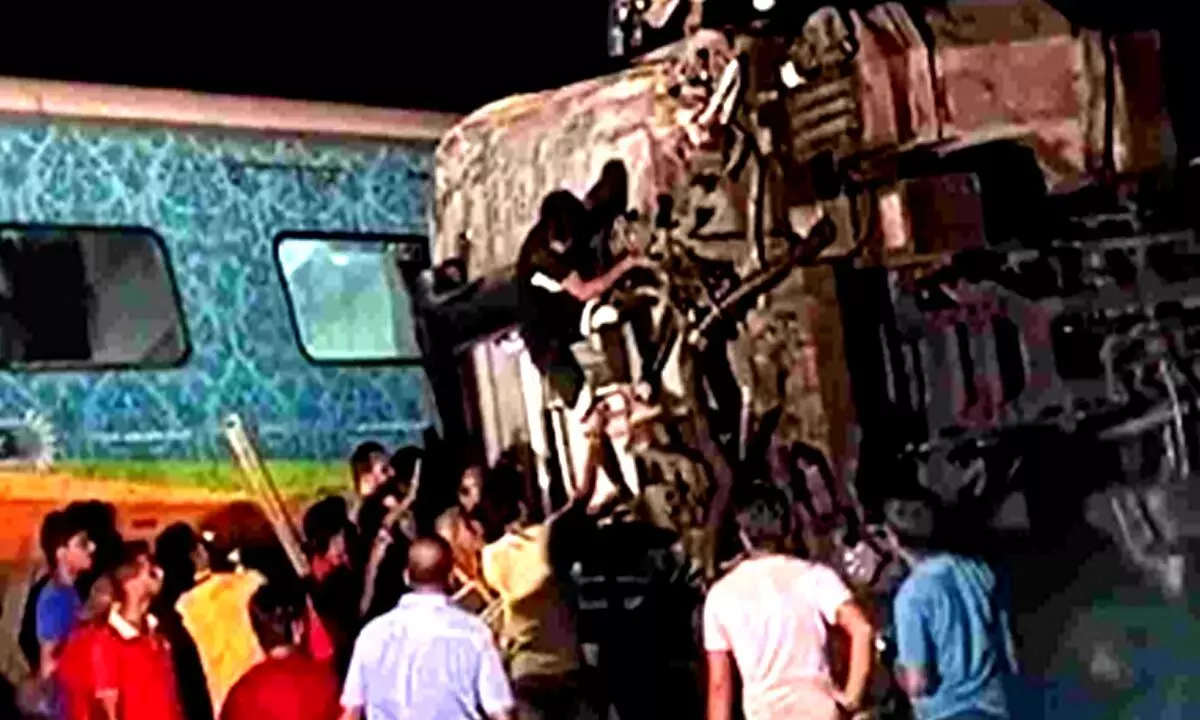
Odisha Train Accident
Following the horrific train accident in Odisha's Balasore on Friday evening that claimed 275 lives, an official document showed that the national transporter did not have lack of funds, as it "spent over Rs 1 lakh crore" between 2017-18 and 2021-22 from its Rashtriya Rail Sanraksha Kosh (RRSK) funds.
New Delhi: Following the horrific train accident in Odisha's Balasore on Friday evening that claimed 275 lives, an official document showed that the national transporter did not have lack of funds, as it "spent over Rs 1 lakh crore" between 2017-18 and 2021-22 from its Rashtriya Rail Sanraksha Kosh (RRSK) funds.
The Railways has announced a high-level probe as well as an independent inquiry by the Commissioner of Rail Safety, which comes under the Ministry of Civil Aviation.
Congress President Mallikarjun Kharge on Monday wrote to Prime Minister Narendra Modi saying that "all the empty safety claims" of Railway Minister Ashwini Vaishnaw have been "exposed".
He also said there is serious concern among people about the deterioration in safety standards of the Railways.
An official government data showed that capital expenditure on all projects of Indian Railways, including safety related works, is funded from three major sources -- gross budgetary support (GBS), internal generation of Railways, and external borrowing.
The document said that RRSK was introduced in 2017 after recognising the importance of ensuring adequate funds for railway safety with a corpus of Rs 1 lakh crore to be utilised over a period of five years starting 2017-18 for critical safety related works.
"Contrary to the statements being made, the Railways has ensured that this fund was fully utilised," a government source said.
"From 2017-18 to 2021-22, Railways spent more than Rs 1 lakh crore on RRSK works," the source said, adding that the government also extended the validity of RRSK for another five year from 2022-23," the data stated.
Showing the expenses made by the Railways on track renewal in the last five years, the data said, "Track renewal is an important component of safety and expenditure on track renewal during 2017-18 to 2021-22 has reflected a steady growth."
It said that from Rs 8,884 crore in 2017-18, the expenditure on track renewal increased to Rs 13,522 crore in 2020-21 and to Rs 16,558 cr in 2021-22.
In total, Railways spent Rs 58,045 crore on track renewal during this period, the data showed.
It also highlighted that the CAG report of 2022 on "derailment in railways" was laid on the floor of the House on December 21 last year.
"The coverage of RRSK utilisation, in the report, is limited to three years - 2017-18, 2018-19 and 2019-20. Hence, it gives a partial picture on actual expenditure that has been undertaken on both track renewal as well as safety related works by the Indian Railways," the source said.
The source also said that as per the practice, a detailed reply on all issues raised in the CAG report will also be sent shortly.
"The factual position on expenditure, therefore, is completely contrary to the figures being quoted in some sections of the media, The actual trend of expenditure on track renewal has increased from Rs 47,039 crore during 2004-05 to 2013-14 to Rs 1,09,023 crore during 2014-15 to 2023-24, reflecting an increase of more than double," the source said.
The remarks from the government sources came after the Congress cited several reports that included the CAG report on derailment, claiming less amount was spent on track renewal and even non-utilisation of RRSK funds for safety works.
The Congress said that as per the latest audit report, between 2017-18 and 2020-21, almost seven out of the 10 train accidents happened due to train derailment. It also said that from 2017 to 2021, there was zero testing of rails and welds (track maintenance) for safety in East Coast Railway and asked why was it sidelined.
The Congress also asked why 79 per cent funding work was done in RRSK, while Rs 20,000 crore was to be made available every year. It asked why has there been a huge decrease in the amount for track renewal works.
The government source also stated that the expenditure on safety related works, which include track renewal, bridges, level crossings, ROB or RUBS, signalling works etc. has increased from Rs 70,274 crore during 2004-05 to 2013-14 to Rs 1,78,012 crore during 2014-15 to 2023- 24, reflecting more than two-and-a-half fold rise.
The source further said that even the GBS for railways in the last nine years has increased almost five times as compared to the GBS between 2004-05 and 2013-14.
The data showed that from 2004-05 to 2013-14, the Railways had a GBS of Rs 1,64,743.45 crore, which in the last nine years (from 2014-15 to 2023-24) stands at Rs 8,26,323.48 crore.
The Congress has been demanding the resignation of Railway Minister Ashwini Vaishnaw following the horrific accident in Balasore.
To a question about the February 8 letter by the Principal Chief Operating Manager of South Western Railway Zone urging and warning to repair the signalling system citing a tragedy in Mysore in which two trains were saved from collision, the source said, "One unsafe incident was reported on February 8 this year and during our inquiry, human error was found. So that was pointed out and the deficiency was rectified."
He also said that the kind of error in the February 8 incident was completely different as compared to the latest train accident.







